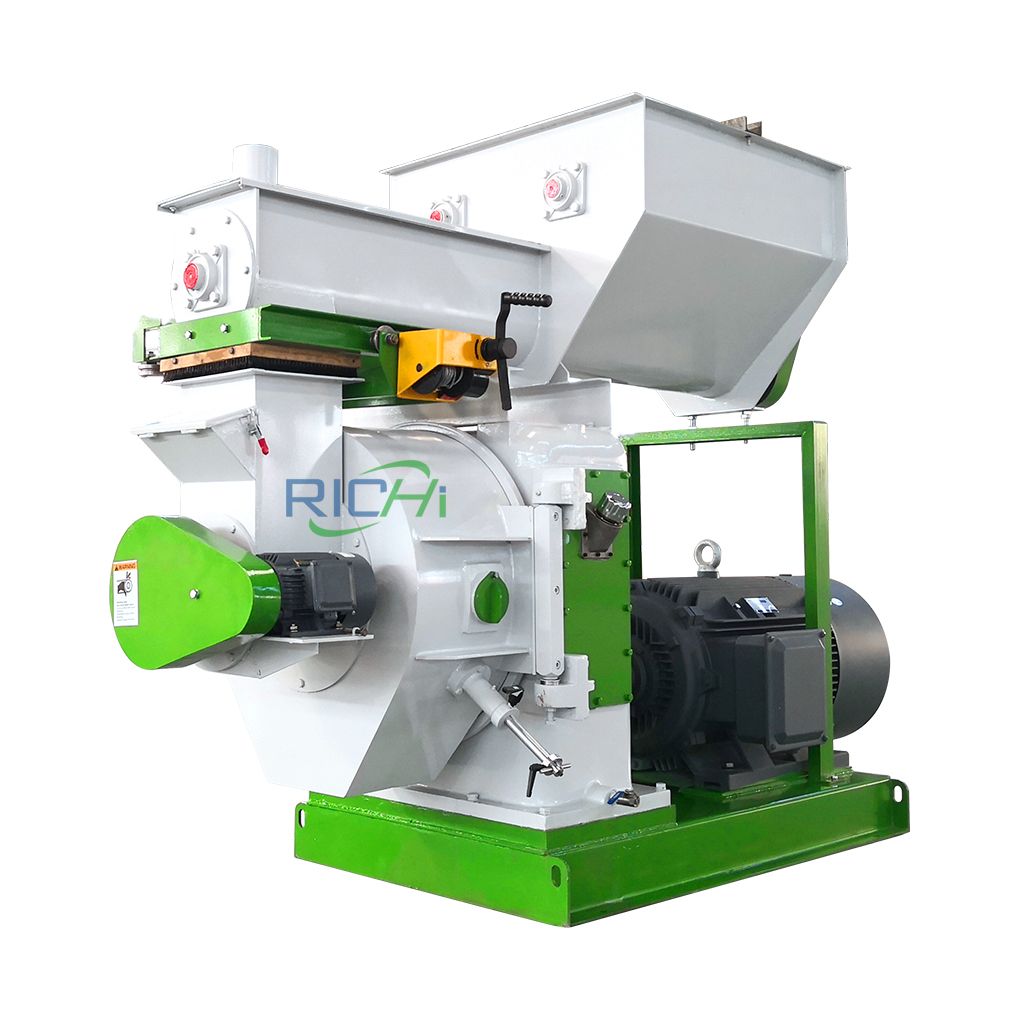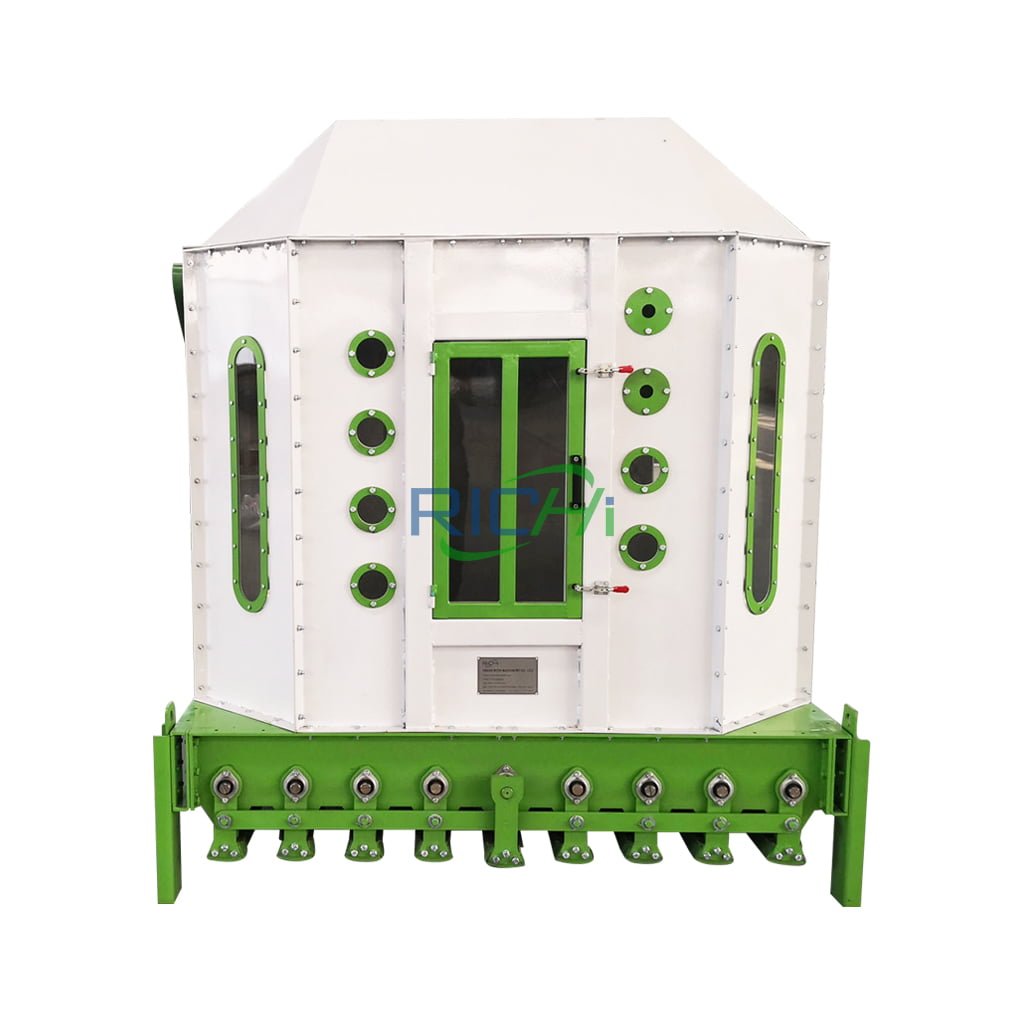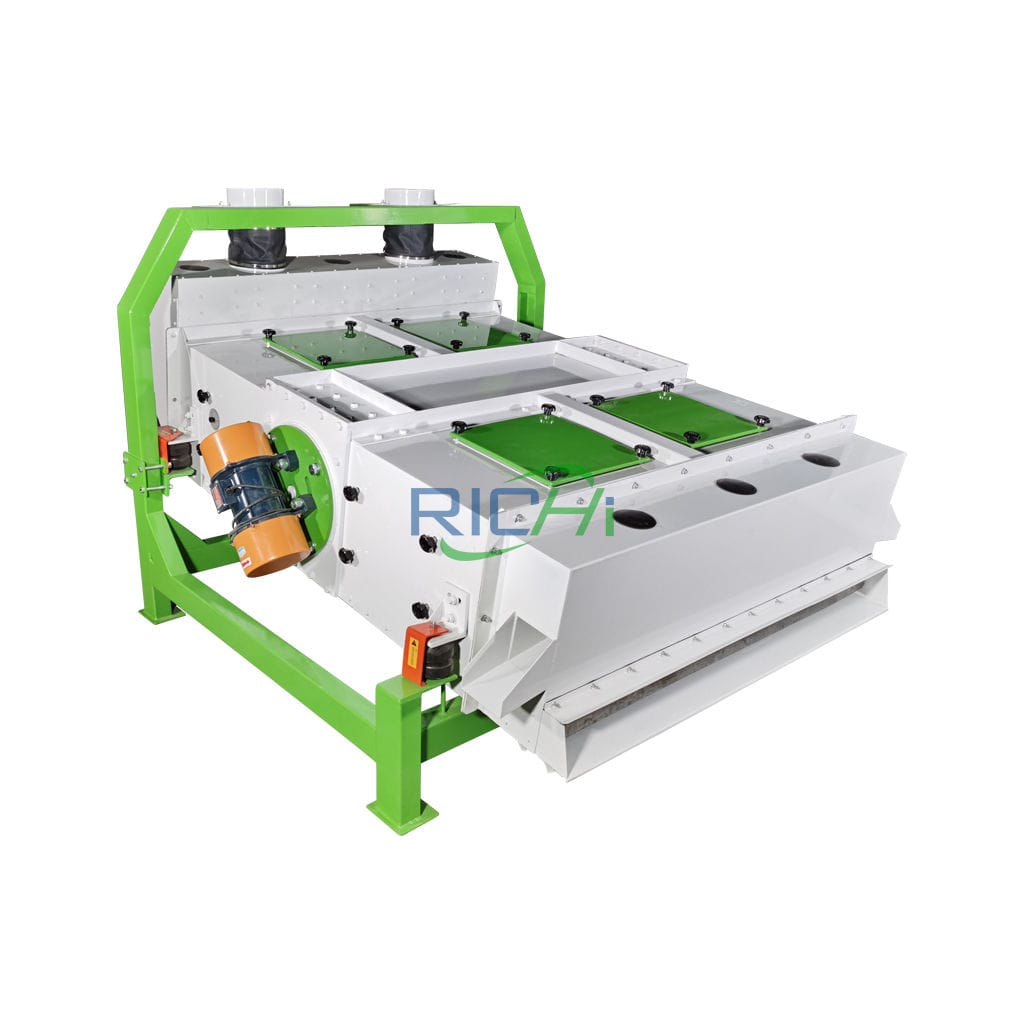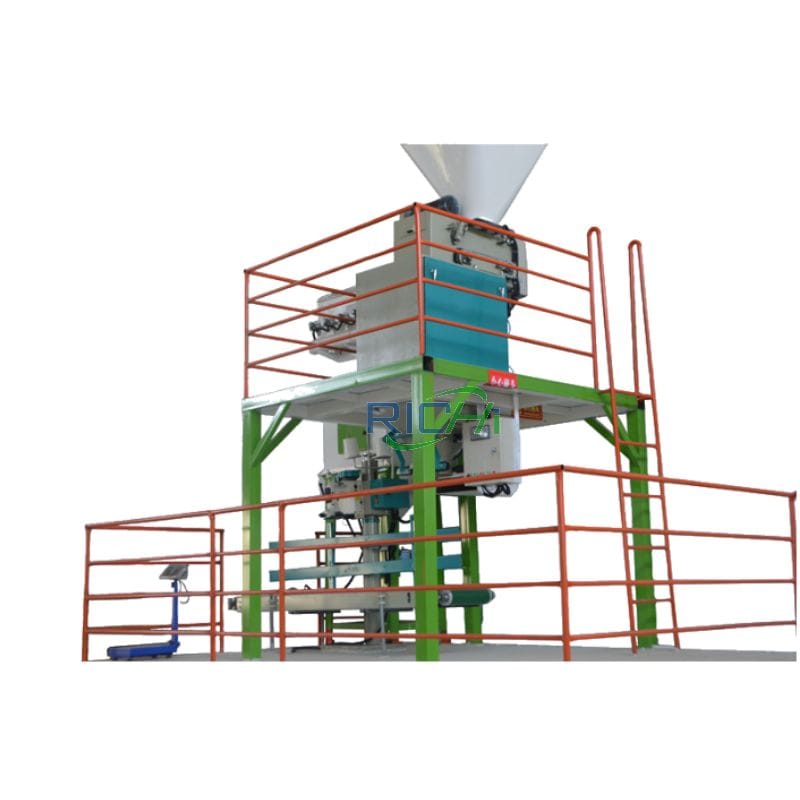
Organic Fertilizer Production Project
Organic fertilizer production project is an important field involving the sustainable development of agriculture. It is a type of sustainable development project.
It mainly includes animal manure organic fertilizer projects and plant organic fertilizer projects. The applicable raw materials are various animal manure, agricultural and forestry wastes, and sludge, etc.

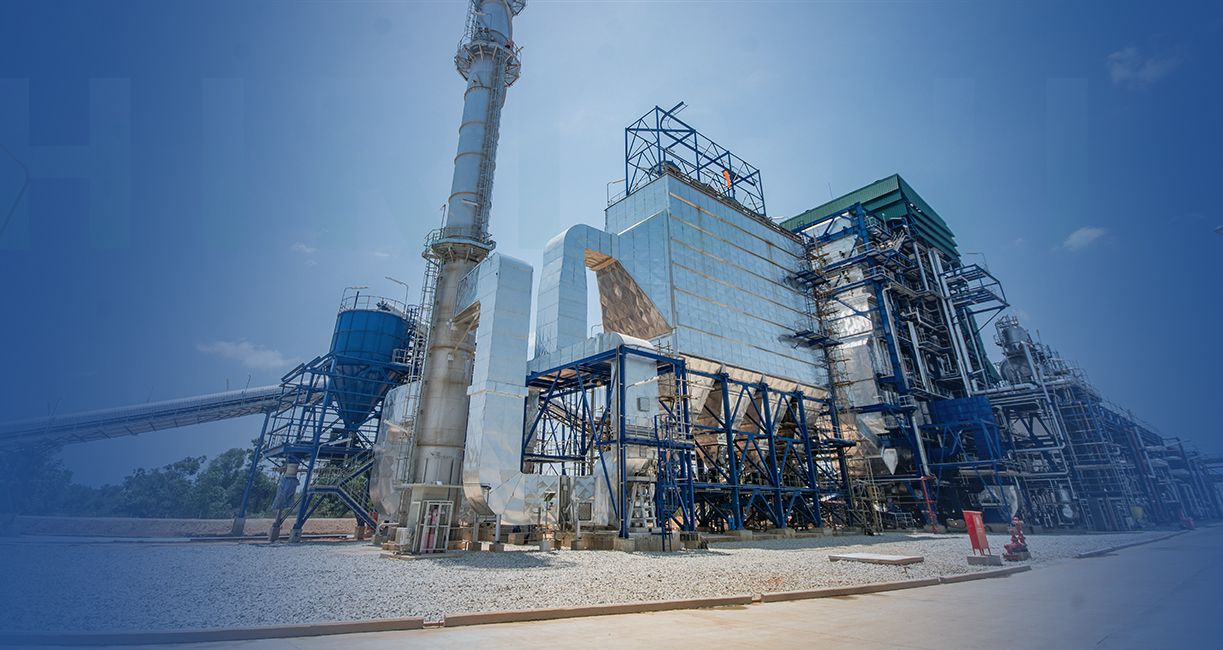
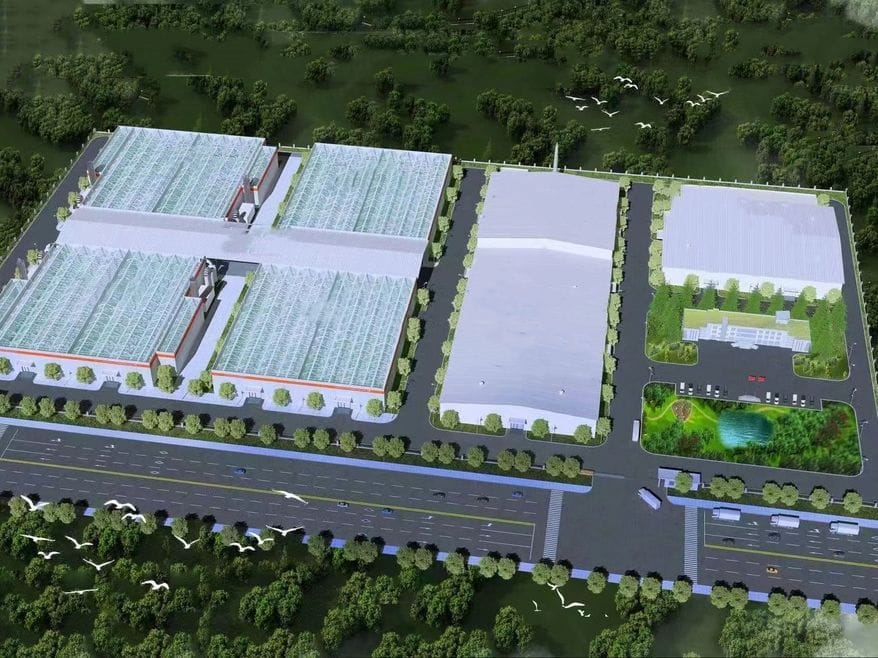
RICHI Machinery can manufacture, design, build, and deliver a full organic fertilizer project to automate production of your product. Our offerings range from manual production line, semi-automatic production line to fully automated production line.
By selecting a mix of pelleting system, crushing system, fermentation systems, mixing systems, screening systems and baling systems, our engineers will work with your staff to achieve your production line design goals.
At present, our organic fertilizer production projects are mainly divided into organic fertilizer production line projects and stand-alone projects, and have been exported to more than 50 countries including the United States, Australia, Canada, Mexico, Lithuania, Germany, Serbia, Russia, Kazakhstan, the United Kingdom, Malaysia, South Africa, Ghana, and India, etc.
- Capacity: 1-60T/H
- Cost: 20,000-3,000,000 USD
- Suitable customers: organic fertilizer plants of various sizes
Featured organic fertilizer production project list
On this page, You’ll find many different types of organic fertilizer production projects. Our equipment has been exported to many countries. Based on high-quality equipment and professional production line equipment, we have finally received praise from customers from all continents, and also for us subsequent clients demonstrated dozens of successful project sites.
This objective fact is one of the reasons why many customers choose us. Another reason is the richness of our projects. The projects we have done cover the production of various organic fertilizers, bio-organic fertilizers, and compound fertilizers, and the raw materials and fertilizer formulas used have their own characteristics.
Below, RICHI will list some of the special projects we have done. We hope this information can provide some reference for your organic fertilizer processing business.
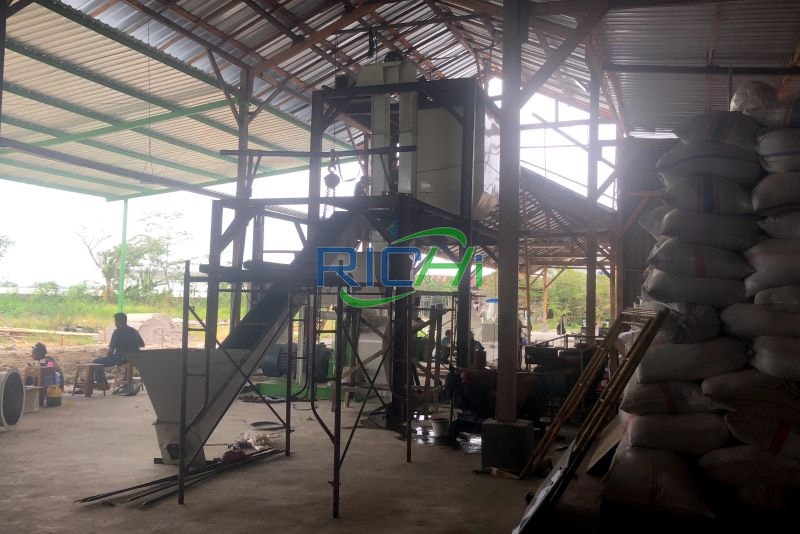
organic fertilizer production project In Vietnam
- Country: Vietnam
- Production: 15000 t/a
- Ingredients: Agricultural and forestry waste, sludge
- Organic fertilizer production line price: 80,000 USD
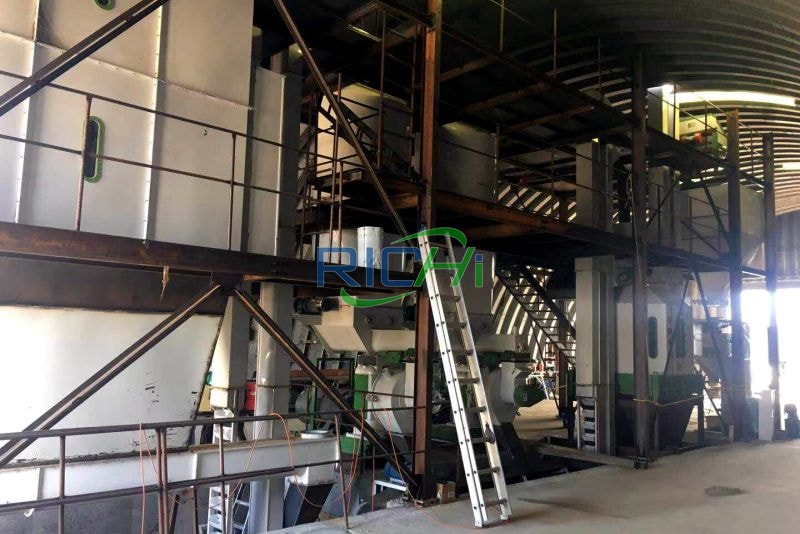
organic fertilizer production project In Brazil
- Country: Brazil
- Production: 10,000 T/A
- Ingredients: Poultry & livestock manure
- Organic fertilizer production line price: US$110,000
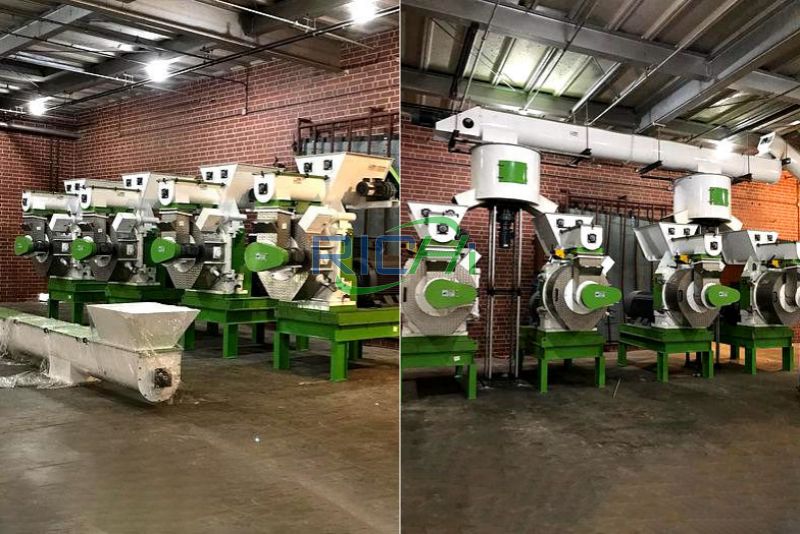
organic fertilizer production project In United States
- Country: United States
- Production: 50,000 T/A
- Ingredients: poultry litter, agri waste
- Organic fertilizer production line price: US$430,000
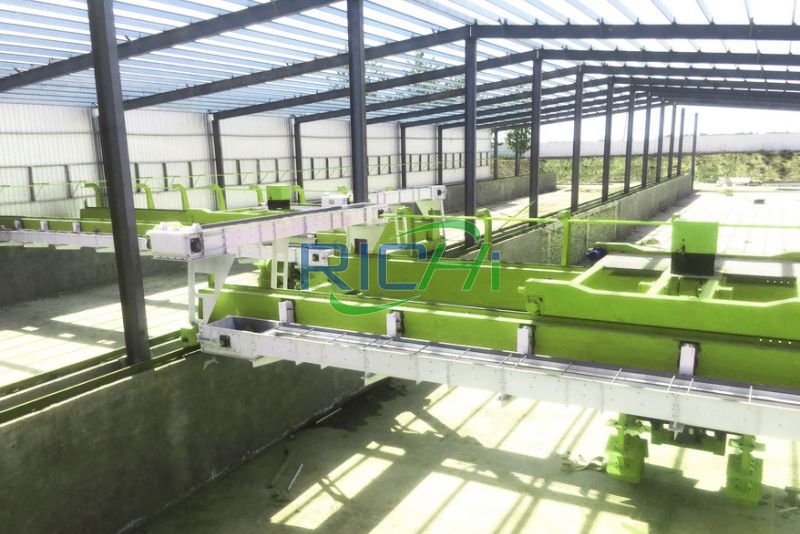
organic fertilizer production project In Croatia
- Country: Croatia
- Production: 35,000 T/A
- Ingredients: food waste, animal manure
- Organic fertilizer production line price: 410,000USD
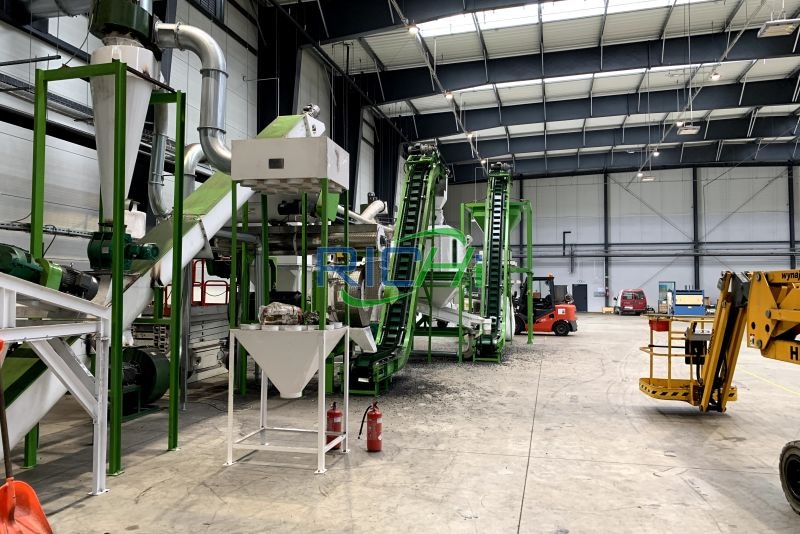
organic fertilizer project In Turkey
- Country: Turkey
- Production: 25,000 T/A
- Ingredients: chicken manure
- Organic fertilizer production line cost: 570,000 USD
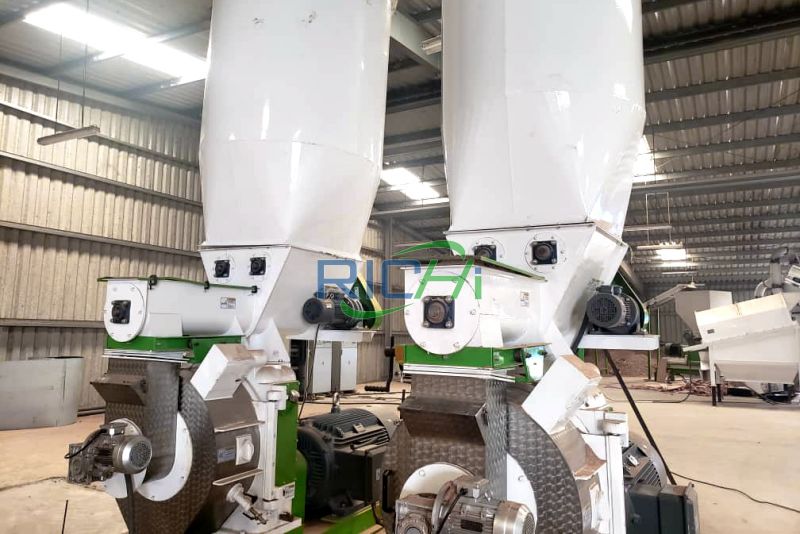
organic fertilizer project In Iran
- Country: Iran
- Production: 30,000 T/A
- Ingredients: animal manure, straw
- Organic fertilizer production line cost: 190,000 USD
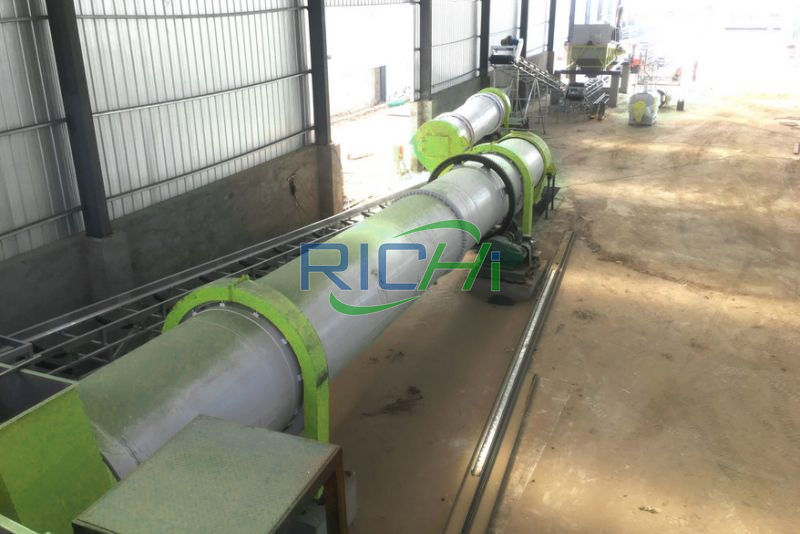
organic manure project In Australia
- Country: Australia
- Production: 6,000 T/A
- Ingredients: livestock manure, sludge
- Organic fertilizer production line cost: $160,000
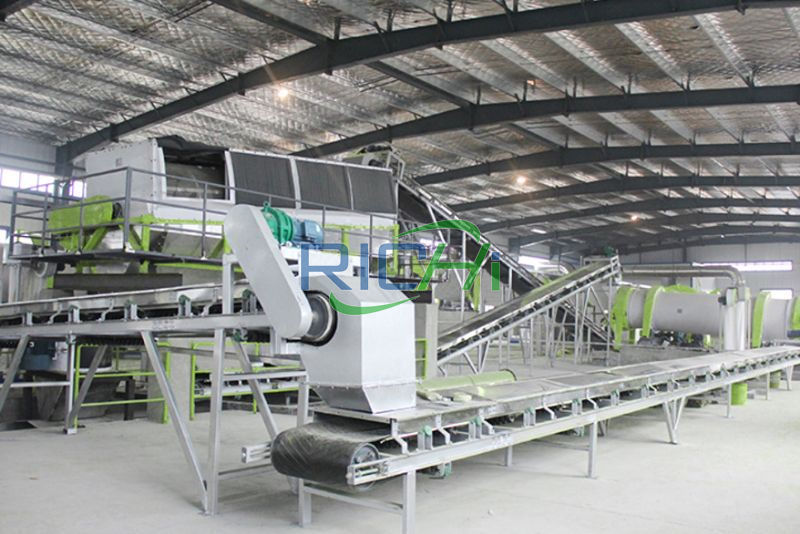
bio fertilizer project In Pakistan
- Country: Pakistan
- Production: 30,000 T/A
- Ingredients: cow manure, argri waste
- Organic fertilizer production line cost: $385,000 USD
organic fertilizer production project proposal
Below, RICHI will show you some organic fertilizer production project proposals. These project proposals are all from some of the projects we have worked on. You can learn more about different raw materials and organic fertilizer formulas, different process plans and equipment selection from these contents.
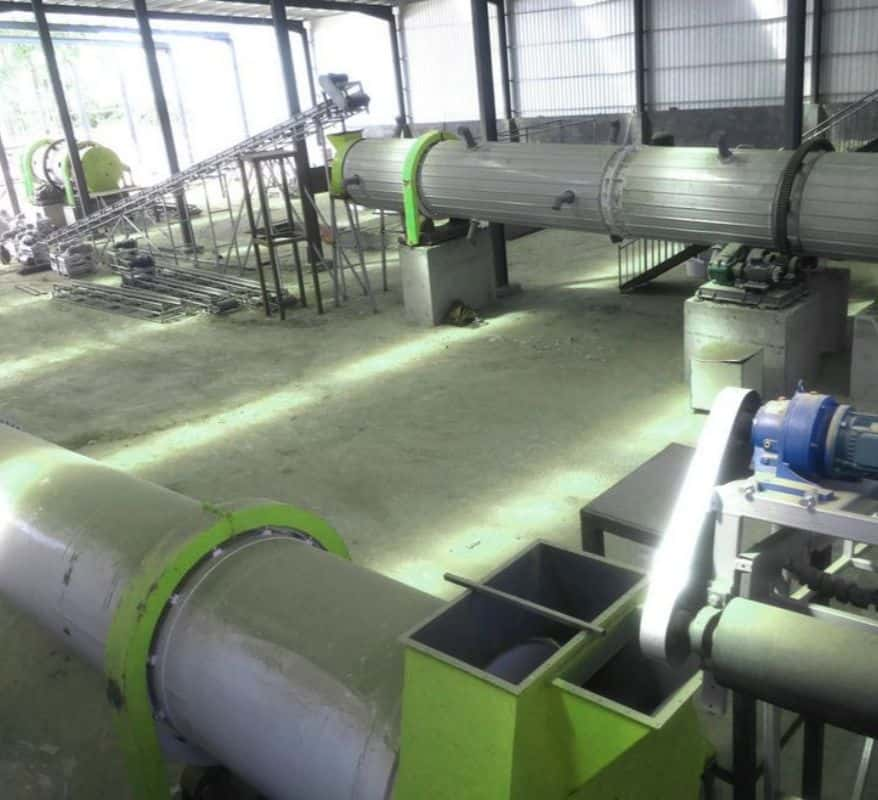
4T/H organic fertilizer production project
—— RICHI MACHINERY ——
- Annual output: 10,000 tons
- Total investment: 280,000 USD
- Project area: 1000m²
- Working system: The labor quota is 6 people, 300 working days throughout the year, with a single shift of 8 hours.
- Raw materials: The raw materials used in production are mainly dry chicken manure (50%), wheat bran (10%), humic acid (30%), and other 10%.
- Energy consumption: water*100t/a, electricity*2500Kwh/a
- Main equipment: fermentation equipment, mixer, hammer mill, turning machine, organic fertilizer granulator, vibrator screen, conveying equipment, baling machine, laboratory analysis equipment, etc.
4T/H organic fertilizer production project Process flow introduction:
This project mainly uses dry chicken manure, wheat bran (cornmeal), and humic acid as raw materials, and is fermented and processed by microbial bacteria to produce microbial organic fertilizer.
The processing technology is: Preparation of materials (dried chicken manure, wheat bran) , humic acid, etc.) – weigh – moisten water (10kg water/1t product) – add bacteria – mix and stir (50% dry chicken manure, 10% wheat bran, 30% humic acid, trace elements and strains, etc. 10%) – granulation – cooling – screening – packaging
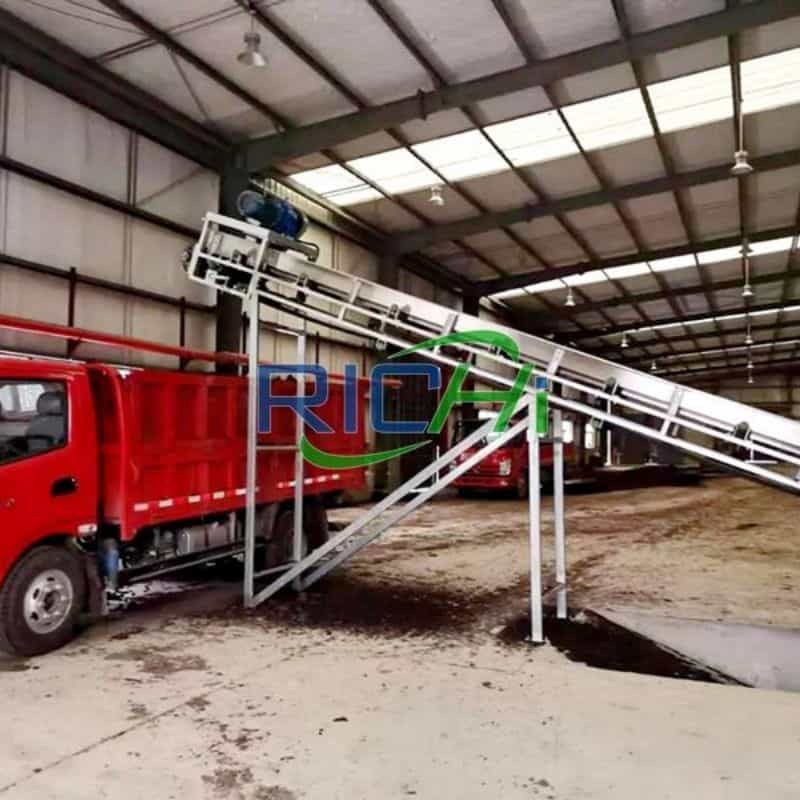
6 T/H organic fertilizer production project
—— RICHI MACHINERY ——
- Annual output: 45,000 tons of bio-organic fertilizer per year
- Total investment: 390,000 USD
- Project area: 2250m²
- Construction content: fermentation workshop, feeding workshop, crushing workshop, finished product warehouse, office area, laboratory, hazardous waste temporary storage room, etc.
- Working system: 20 people, three-shift work system, with each shift working 8 hours, and 300 days a year.
- Raw materials: domestic sludge (moisture 50%) * 75000 t, livestock and poultry manure (moisture 30%) * 10000 t (pig manure, chicken manure), food waste (moisture 80%) * 5000 t, fermentation bacteria*1800 t
- Laboratory testing supplies: potassium dichromate*100g, sodium hydroxide*5000g, copper sulfate*60g, sulfuric acid*5000mL, bromocresol green*3g, activated carbon*350g, ammonium molybdate*30g, etc.
- Main equipment: mixer, feed bin, turning machine, conveyor belt, crusher, screening machine, packaging machine, air compressor, etc.
6 t/h Brief description of bio fertilizer project process:
- After the raw materials are transported to the factory by transport vehicles, they do not need to be stored and are immediately put into the silo.
- Stir and mix evenly through a double-shaft mixer, then send it to the fermentation tank for fermentation, and add starter (special strains) at the same time.
- During the fermentation process of the raw materials, they are tossed and stirred to make the raw materials evenly mixed. Generally, they are tossed once every two days to allow them to fully ferment.
- The fermented organic fertilizer are crushed and screened, and the items above the sieve are returned to crushing, and the items below the sieve meet the size requirements.
- A part of the sieved organic fertilizer is transported to the packaging machine for packaging. The packaged organic fertilizer is transported to the finished product area for sale.
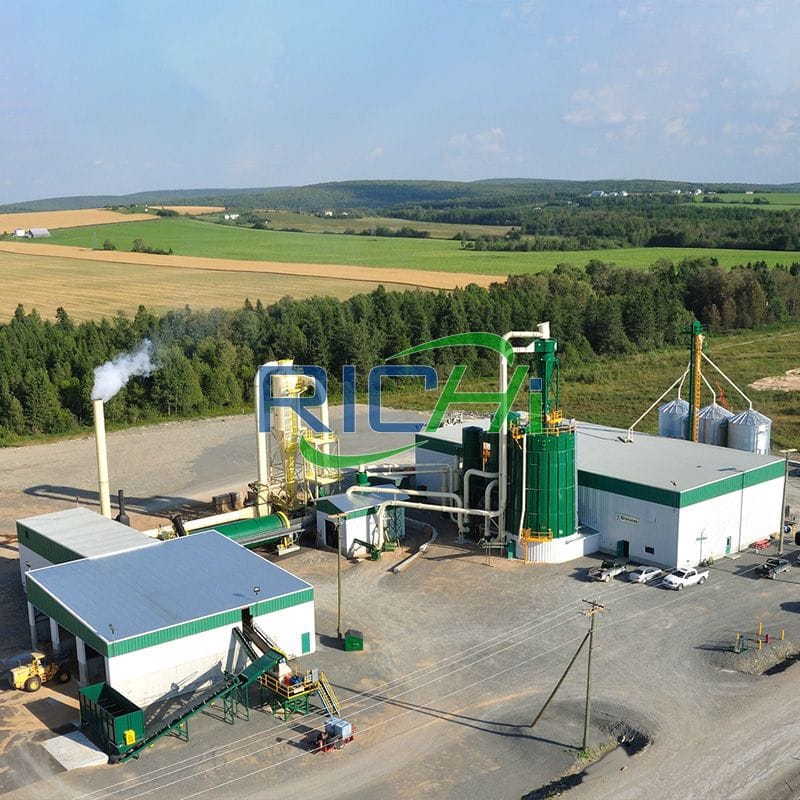
12 T/H organic fertilizer production project
—— RICHI MACHINERY ——
- Annual output: 10,000 tons per year (40KG/bag)
- Organic fertilizer production plant cost: 520,000 USD
- Project area: 3300 m²
- Construction content: processing workshop, compost fermentation workshop, office, canteen, raw material warehouse (located in the compost workshop, the workshop is closed. The storage material is pig manure), finished product warehouse
- Number of employees & work system: 3 project employees, 8-hour work shift, 100 days of work per year.
- Raw materials: pig manure, 21900t, in bulk, solid, moisture content about 54%
- Energy consumption: water*54t, electricity*10kwh
- Main equipment: sewage transport trucks, conveyors, turners, mixers, crushers, screening machines, weighing and packaging machines, forklifts, dryers, etc.
12 T/H organic fertilizer production project Process:
Pig manure is naturally accumulated and fermented in the fermentation workshop. The matured fertilizer enters the crusher through a closed conveyor belt for crushing, and is crushed to a suitable size to obtain powdered organic fertilizer, which is then transported to a screening machine through a closed conveyor belt for screening.
The unqualified fertilizer is collected and returned The crusher is reused as raw material. The screened powdered organic fertilizer is transported to the automatic packaging machine through a belt conveyor, weighed and packaged, and then put into storage for sale.
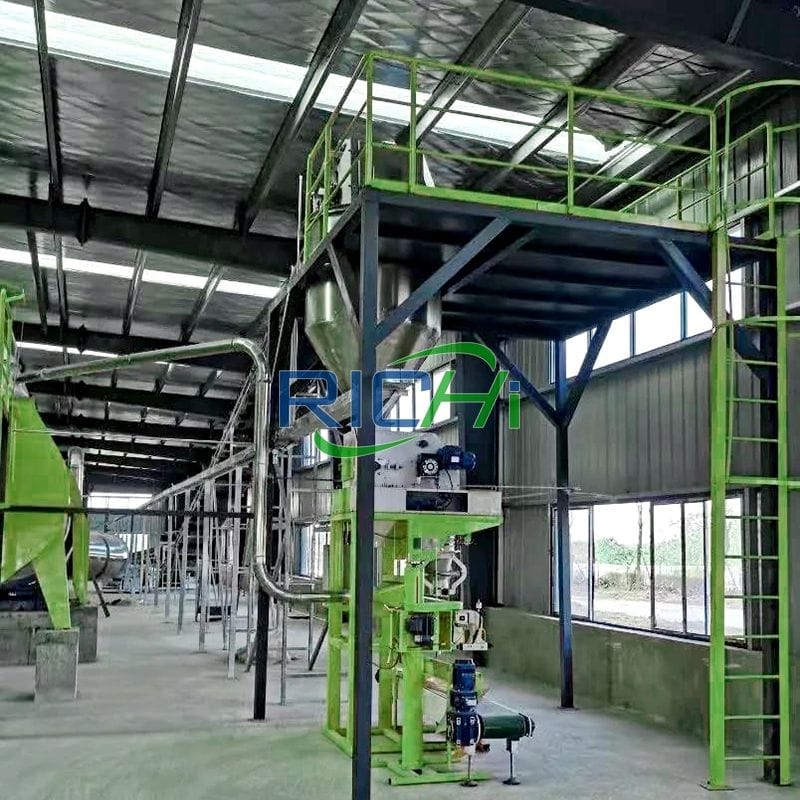
4 T/H organic fertilizer production project
—— RICHI MACHINERY ——
- Annual output: 20,000 tons
- Total investment: 180,000 USD
- Project area: 1510 m²
- Main construction contents: production workshop, (fermentation area, finished product storage area, raw material storage area), office building, dormitory building, canteen.
- Number of employees & work system: 16 employees, working 300 days a year, two shifts of 8 hours each day.
- Raw materials consumption(t/a): agricultural waste*2000 (agricultural straw, forestry branches and leaves, sawdust, rice husk, etc., moisture content is about 20%), furfural waste residue*10000 (moisture content is about 40%), livestock manure*8000 (chicken manure, pig manure, with a moisture content of about 55%), biological deodorant*20 (lactic acid bacteria, bacillus, biological enzymes, organic acids and other effective active ingredients), biological agents*10, microbial inoculants*10
- Energy consumption: electricity* 150,000 kWh. The project does not equip generators.
- Main equipment: turner, crusher, mixer, baler, conveyor, screening equipment, etc.
4 t/h organic fertilizer production process:
- Put the purchased raw materials into the mixing tank, spray the biological deodorant at the same time, stir evenly, and the humidity is about 45%.
- Entering the compost fermentation stage, the fermentation is carried out in a closed workshop. The fermentation time is 20 days. When the humidity is 65%, a turning machine is used to turn the compost. The fermentation temperature is 65-70°C.
- Ventilation, heat dissipation, and natural drying are followed by the next step. Use a grinder to grind the fermented fertilizer into powder.
- After adding biological agents, the finished product is regularly sent to a third-party agency to inspect the moisture content and related pollutant values in the finished product.
- If the product meets the organic fertilizer standards, it passes the quality inspection and can be shipped out of the warehouse for sale. If the product fails the quality inspection, it will be returned to mixing. The pool is used for secondary mixed fermentation and production is restarted.
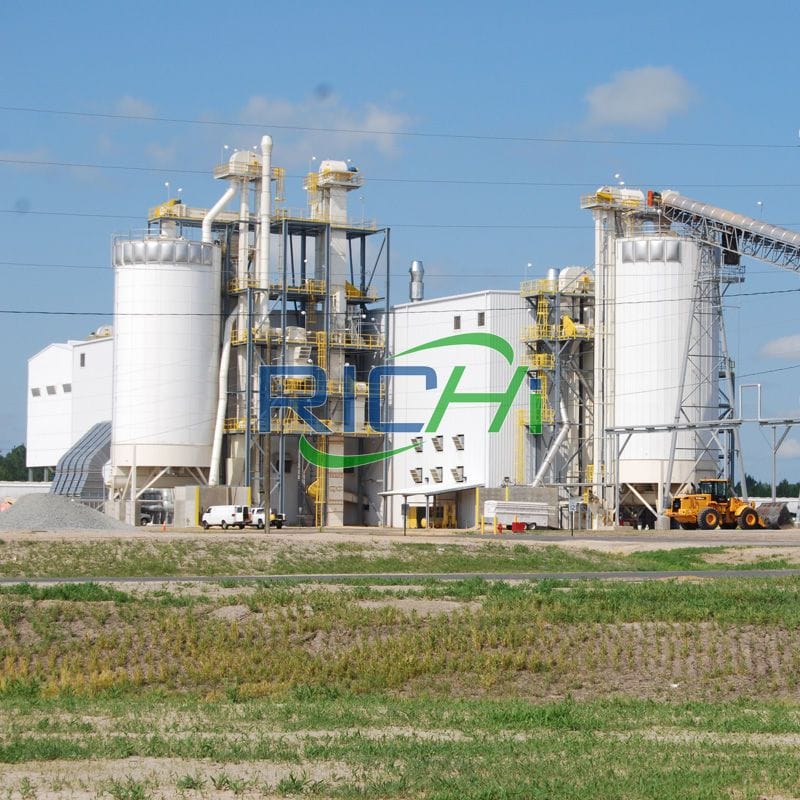
20 T/H organic fertilizer production project
—— RICHI MACHINERY ——
- Annual output: 50,000 tons of organic fertilizer per year
- Total investment: 850,000 USD
- Project area: 3000 m²
- Construction content: Fermentation workshop, finished product warehouse and equipment storage area, warehouse (vacant area for raw materials and products), office
- Number of employees & work system: The total number of employees is about 10, working 300 days a year, 8 hours per shift, one shift.
- Raw materials (t/a): insect excrement*250 million, livestock and poultry excrement*2000, sawdust, mushroom residue, straw powder, rice husk, traditional Chinese medicine residue, xylitol residue and other organic waste*5000, microbial inoculants*10
- Electricity consumption: The electricity used by the project is supplied by the 10kV municipal power grid, with an annual electricity consumption of approximately 70,000 kw.
- Main equipment: silo, crusher, drum screening machine, belt conveyor, high-efficiency mixer, granulator, dryer, drying induced draft dust removal system, cooler, cooling induced draft dust removal system, grading screen, fully automatic Packaging machine, fully automatic distribution cabinet, turning machine
20 T/H organic fertilizer production project Process flow overview:
- The project outsources the main materials (worm excrement), auxiliary materials (livestock and poultry excrement, sawdust, mushroom residue, straw powder, rice husk, traditional medicine residue, xylitol residue and other organic waste) and microbial inoculants, and then the ingredients are prepared according to a certain proportion, and the raw materials are prepared and placed in the fermentation workshop for compost fermentation for 10-15 days.
- During the fermentation period, a turning machine is used to rake regularly, and microbial agents are sprayed. The fermented semi-finished organic fertilizer is conveyed to the feeding bin is then crushed by a pulverizer, and then transported through a conveyor belt to a grading screen for screening.
- The qualified products become powdered bio-organic fertilizers; some powdered bio-organic fertilizer products are processed by a multi-dimensional high-efficiency mixer and then conveyed by a conveyor belt. It is transported to the organic fertilizer pellet mill and disc throwing machine for granulation, and finally undergoes secondary screening by the drum screener. If the product particle size is not up to standard, it is re-crushed and re-granulated.
- The qualified product is dried in the dryer. If the product is If the moisture content is too low, the product will be passed through a moisture regulator to adjust the product moisture. If the moisture content is less than 30%, it is a qualified product. After cooling, the qualified product will be transported to the warehouse by a conveyor belt to become a granular organic fertilizer.
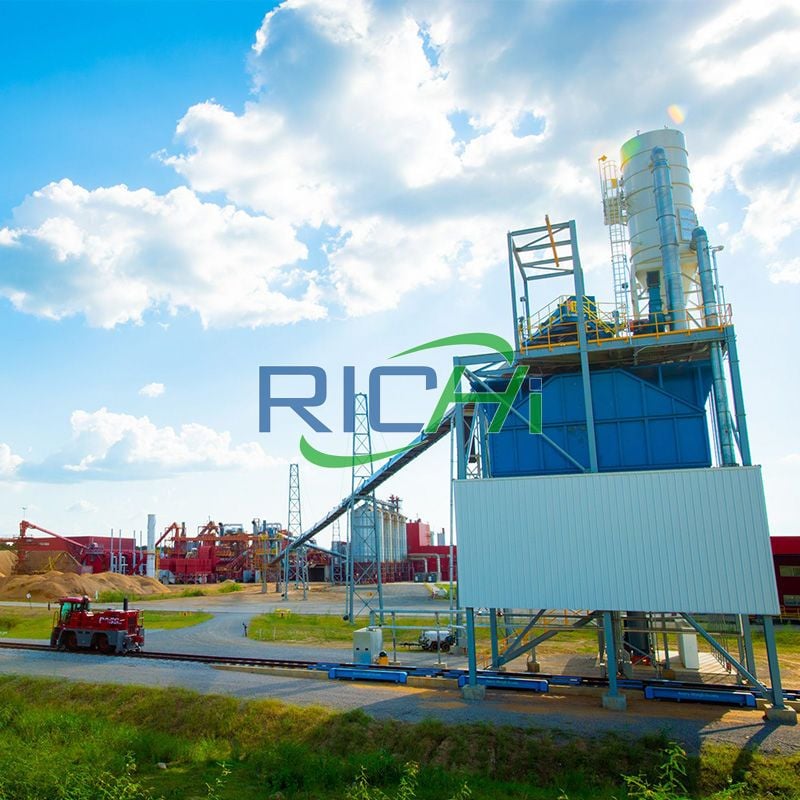
25 T/H organic fertilizer production project
—— RICHI MACHINERY ——
- Annual output: 130,000 t/a
- Total investment: 720,000 USD
- Project area: 4666 m²
- Number of employees & work system: The number of employees in this organic manure project is 30, working 330 days a year, two shifts, each shift working 8 hours.
- Raw materials: urea*11015t/a, ammonium sulfate*27714t/a, ammonium chloride*27714, phosphoric acid*23466t/a, potassium chloride, 21343t/a, sulfuric acid*12773t/a, dry powder*2144.684t/a, sticky powder *5144.265t/a
- Product specifications: 1.00mm-4.75mm or 3.35mm-5.60mm
- Energy consumption: electricity consumption*580,000kwh, natural gas*776,400m3/a
- Main equipment: biomass heating furnace, natural gas hot blast furnace, pulverizer, mixer, granulator, mesh belt dryer, drying cylinder, vibrating screen, finished product weighing scale, bag sewing machine, electronic scale, belt conveyor, etc.
25 T/H organic fertilizer production project:
- Weigh the raw materials according to the proportion, put them into the mixer and mix them evenly.
- The mixed materials crushed by the pulverizer are transported to the fertilizer granulation equipment through the conveyor belt for granulation.
- After granulation, it contains high moisture (about 10%) and needs to be dried to keep the moisture content below 2% to maintain stable quality of the finished product. The temperature of the dried semi-finished product is about 50°C and needs to be cooled.
- The cooled granules will also contain some unqualified materials, which need to be transported to the vibrating screen through a belt for screening. Qualified finished products are measured and packaged according to regulations.
- The packaged finished products are transported by forklifts to the finished product warehouse for storage and waiting for shipment.
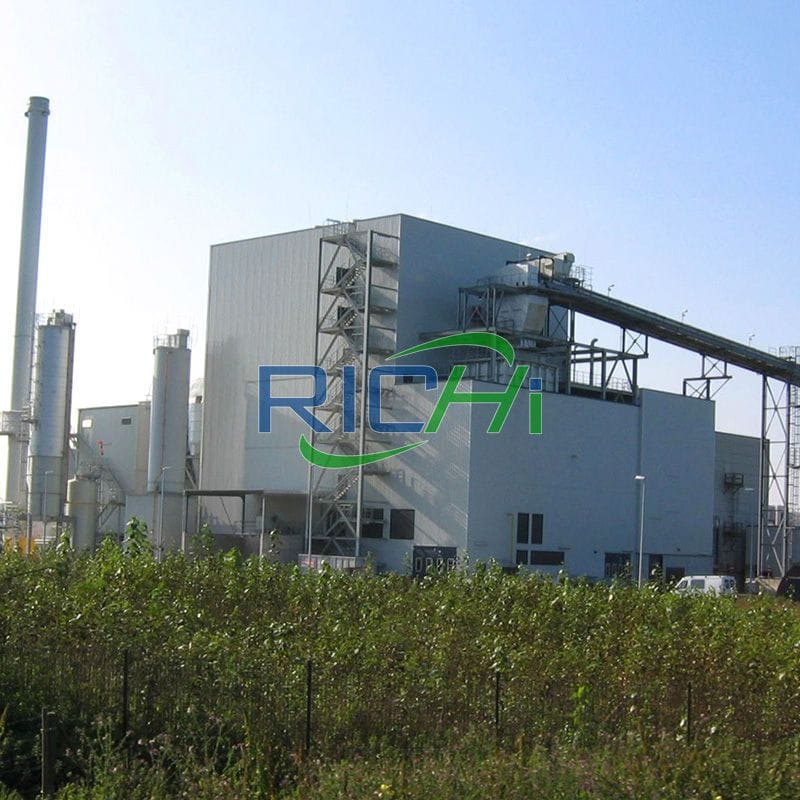
30 T/H organic fertilizer production project
—— RICHI MACHINERY ——
- Annual output: 58,000 tons
- Total investment: 1,280,000 USD
- Project area: 3600m²
- Main construction contents: production workshop, finished product warehouse, raw material warehouse, office building, canteen, power distribution room
- Number of employees & work system: The number of employees is 18, production is 8 hours a day, and the operation is 240 days a year.
- Raw material consumption (t/a): distiller’s yeast residue*20000, plant ash*20000, urea*1600, ammonium chloride*2000, ammonium sulfate*800, superphosphate fertilizer*400, monoammonium phosphate*1200, potassium chloride*1600, Bentonite*400, superphosphate*10000
- Product specifications: Φ4-8mm
- Energy consumption: water*2376.2m3/a, electricity*350,000kw·h
- Main equipment: organic fertilizer granulator, pulverizer, mixer, conveyor, screening machine, metering machine, induced draft dust collector, packaging scale, forklift, etc.
30 T/H organic fertilizer production project process flow:
This organic fertilizer production line adopts a non-fermentation process. The purchased plant ash, distiller’s yeast residue and superphosphate are mixed and granulated in a ratio of 2:2:1, then enter the crusher for crushing, and then enter the screening machine for screening.
The finished product is divided into containers for packaging and measurement, and the large-grain fertilizer is returned to the process and then enters the mixer for crushing.
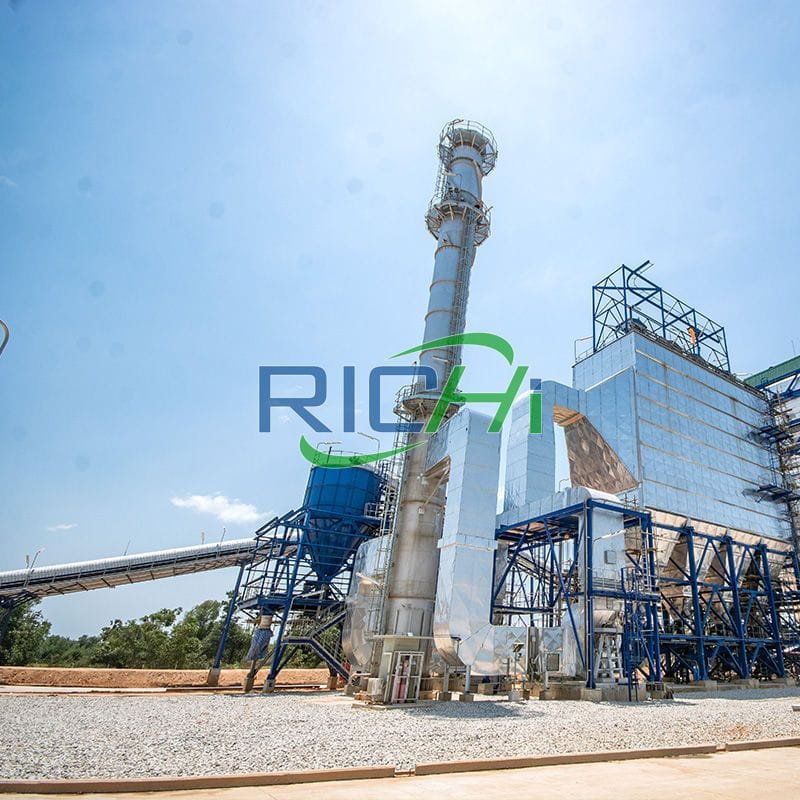
40 T/H organic fertilizer production project
—— RICHI MACHINERY ——
- Annual output: 100,000 tons per year (25kg/bag)
- Bio fertilizer plant project cost: 1,340,000 USD
- Project area: 4500m²
- Main construction content: The bio fertilizer project construction mainly consists of production workshops, warehouses, office and living areas, etc.
- Number of employees & work system: 18 employees, working 300 days a year, 8 hours a day.
- Raw materials: animal manure*62008.3 t/a, humic acid 6000t/a, microbial enzymes*1000 t/a, amino acids*14000 t/a, nitrogen fertilizer*5000 t/a, phosphate fertilizer*5000 t/a, potassium fertilizer* 6000 t/a, trace elements*1000 t/a
- Main equipment: feeding hopper, belt conveyor, organic material feeding silo, automatic batching system, horizontal twin-shaft mixer, pulverizer, fully enclosed grading screen, automatic packaging machine, air compressor, etc.
40 T/H organic fertilizer production project Process flow overview:
- Some of the fermentation raw materials used in this project are purchased and fermented finished products and are not fermented in the factory. The production process of this project mainly includes weighing and batching systems, crushing and screening systems, batching mixing systems, packaging systems, control systems and dust removal systems.
- The poultry manure materials that have been fermented and decomposed in the place of origin and auxiliary materials such as amino acids, humic acids, complex bacterial enzymes, nitrogen, phosphorus, potassium, and trace element fertilizers enter the fertilizer production process. First, they are weighed and batched according to the fertilizer formula, and all materials are mixed evenly.
- Then through the crushing and screening system, the bulk materials and impurities in the mixed materials are crushed and screened out by the screening machine.
- The screened finished powdered organic fertilizer enters the weighing and bagging system, and finally the finished product packaging is completed (this project only produces powder (like organic bacterial fertilizer), all these control links can be completed by the centralized control system.
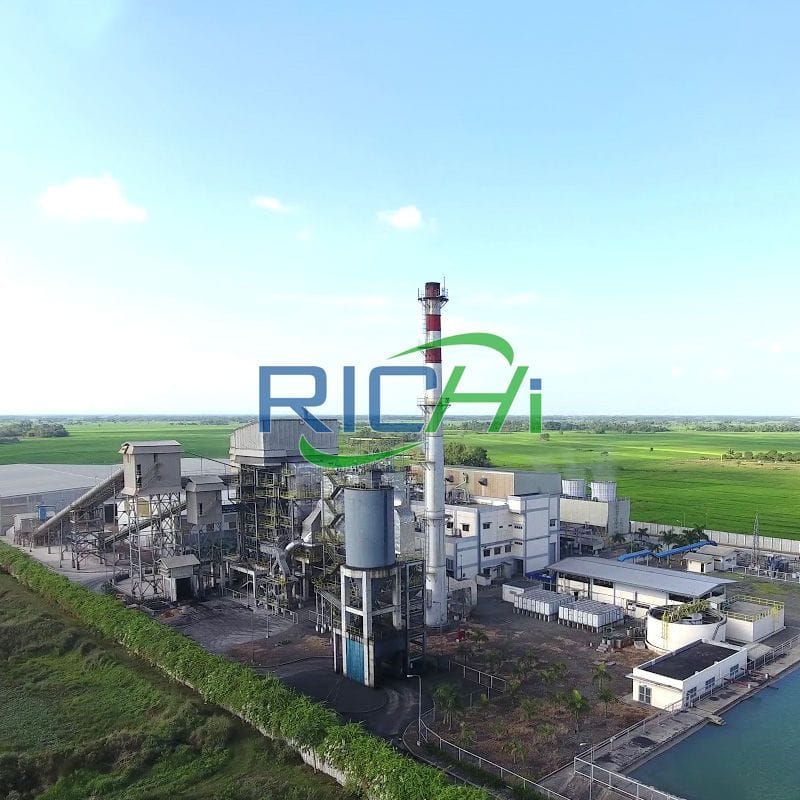
Large organic fertilizer production project proposal
—— RICHI MACHINERY ——
- Annual output: 0.5 million tons of compost fertilizer per year (Constructed in multiple phases)
- Total investment:
- Project area: 4012 m²
- Construction content: production greenhouses, drying yards, raw material storage sheds, finished product warehouses, office buildings, etc.
- Number of employees & work system: 20 employees, working 300 days a year, single shifts, 8 hours a day.
- Raw materials: livestock manure*1.3 million t/a (moisture content: 30%), food residues and biogas residues*350,000 t/a (moisture content: about 54%), brewery residues*335,000 t/a (Moisture content is about 54%), sludge from domestic sewage treatment plant*15,000 t/a
- Energy consumption: annual electricity consumption is 800,000 kwh
- Main equipment: compost tank, ventilation system, deodorization and environmental protection equipment, crusher, granulator, screening machine, quantitative packaging scale, forklift, turner, dryer, reservoir, etc.
Large organic fertilizer production project process overview:
- The purchased sludge raw materials are transported into the factory by a closed dump truck and then directly unloaded into an environmentally friendly greenhouse. Deodorant is added to the sludge raw material as soon as it enters the factory, and the moisture content is reduced to 30%-40% after natural drying for 4-5 days (adjusted according to weather conditions).
- Livestock and poultry manure does not need to be dried. The sewage sludge raw materials are dried by sunlight to remove moisture, and the irradiation process will produce odor. The compost fermentation of this project adopts the method of “aerobic compost fermentation”. The compost temperature is generally 50~60℃, and can reach a maximum of 70-80℃.
- The decomposed fertilizer will be granulated and screened; the fertilizer that fails to pass the screening will be collected and re-entered into the granulation process.
- After the granules are dried in a dryer, they will be put into storage and packaged for sale after passing the random inspection.
As one of the world’s leading organic fertilizer machine manufacturers, we specialize in crafting leading-edge solutions that propel industries into the future. With more than 30 years of excellence behind us, we stand at the forefront of organic fertilizer production industry by designing, building, and integrating custom organic fertilizer production project systems, dynamic test solutions, and factory information systems.
Our commitment to providing full turnkey solutions begins with close collaboration with our clients, tailoring each organic fertilizer production project project to deliver maximum value.
Equipment used in organic fertilizer production project
Generally speaking, organic fertilizer projects mainly require fermentation equipment, turners, pulverizers, mixers, granulators, coolers, dryers, screening machines, quantitative balers, sewing machines, conveyors, dust removal equipment, etc.
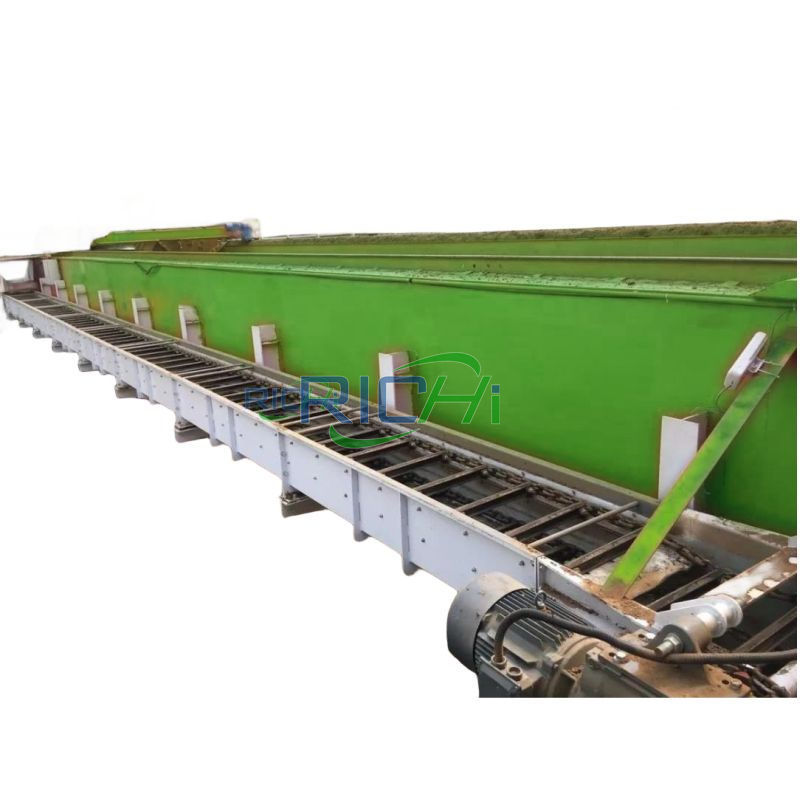
Compost Turner
Turning height:
0.5-2.0 m
Motor:
32-300 KW
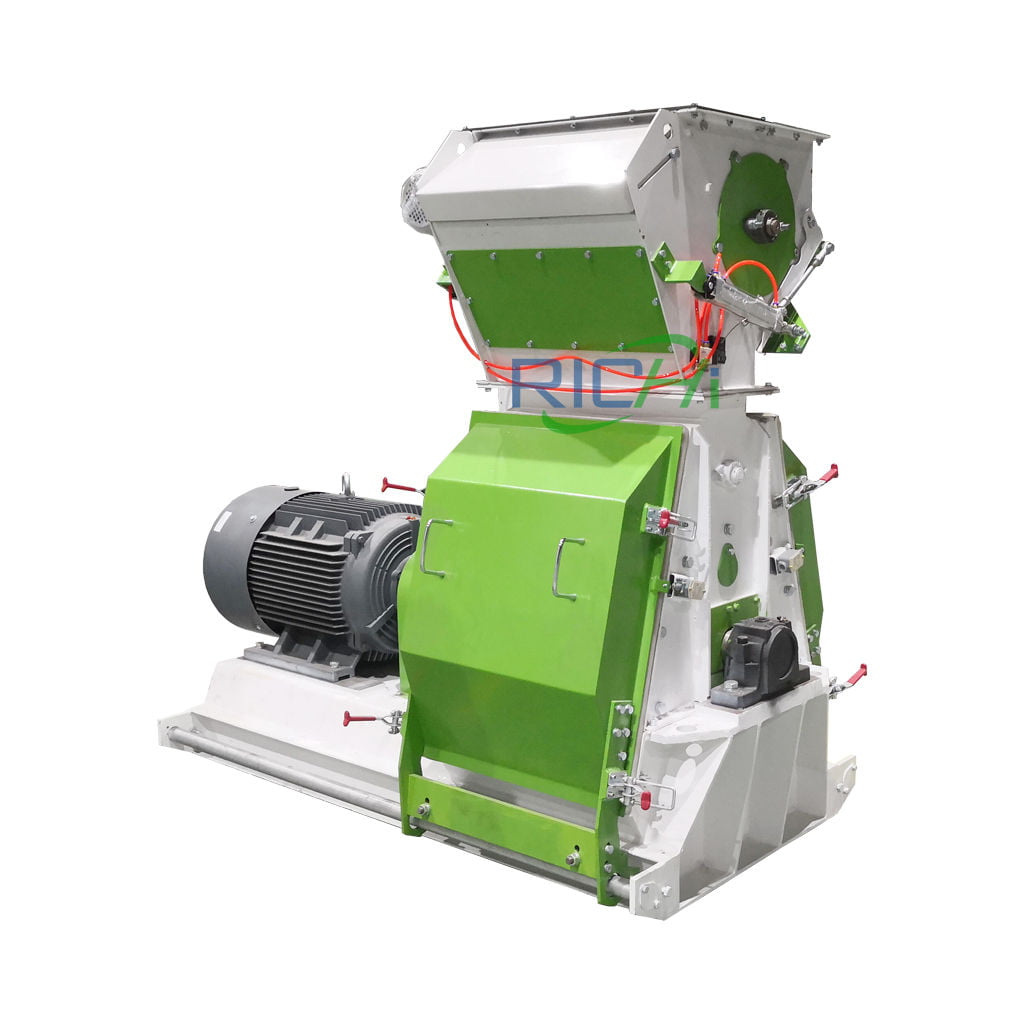
Compost Grinder
Capacity:
3-25T/H
Main Power:
30-160KW
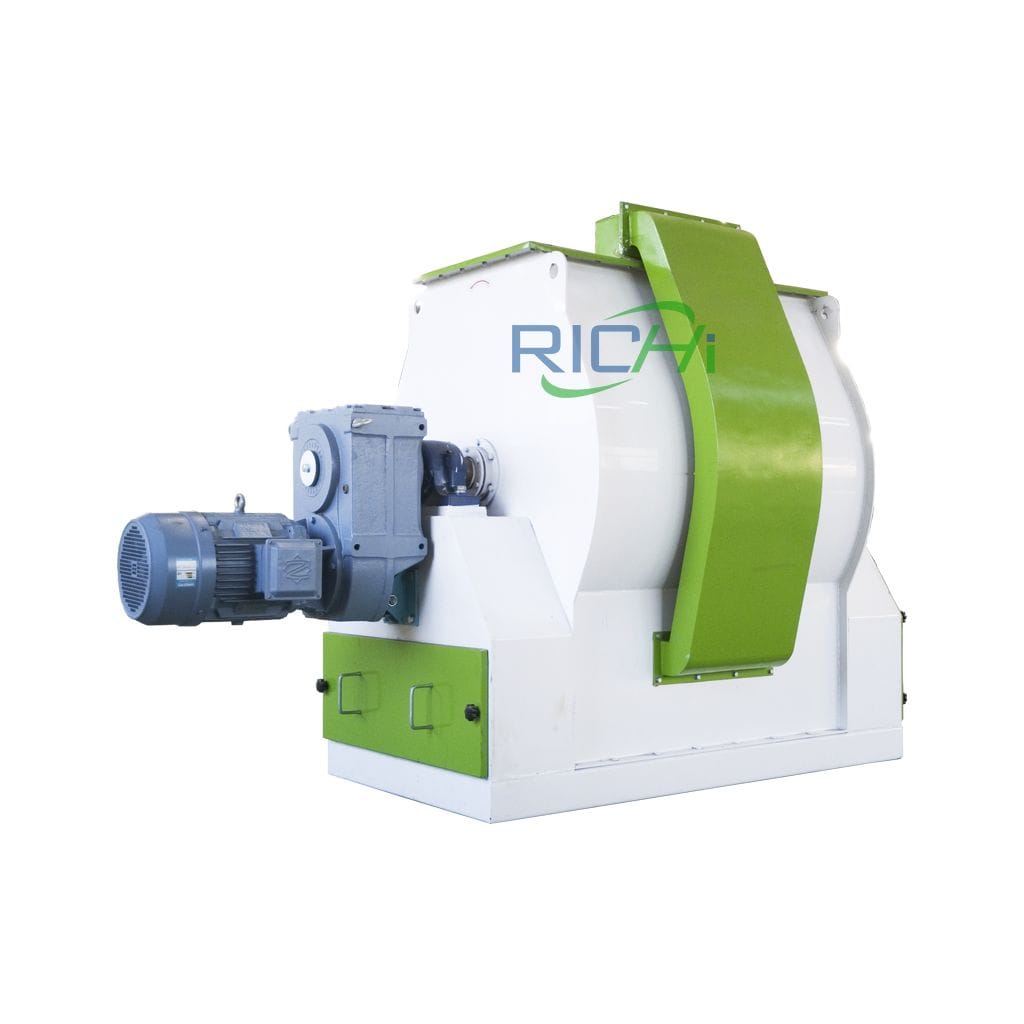
organic Fertilizer Mixer
Capacity:
250-2000 kg/P
Main Power:
4-30 KW
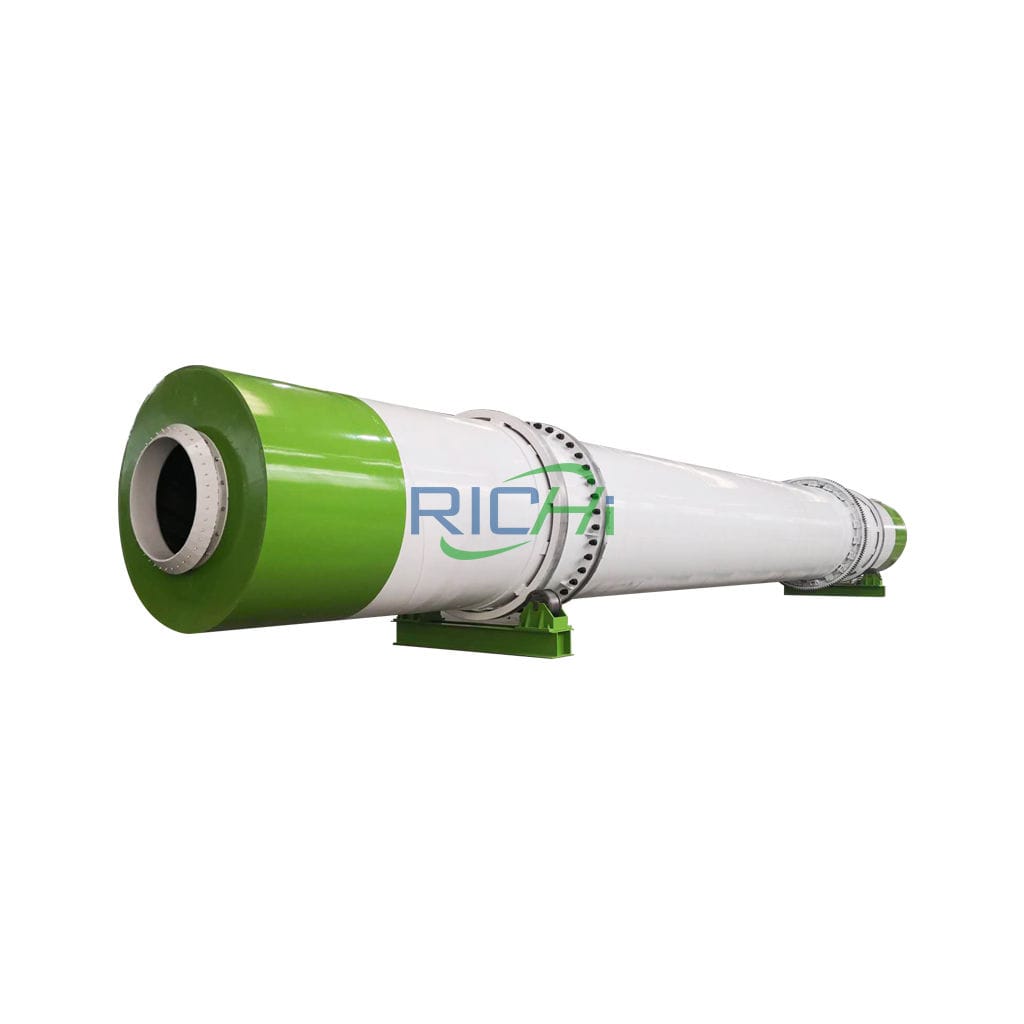
organic fertilizer Dryer machine
Capacity:
Customized
Rotate Speed:
3-8 R/Min
Our organic fertilizer production project engineering, controls, and software teams are experienced fertilizer pellet line manufacturers, always generating fresh ideas to improve overall equipment efficiency and drive better productivity.
How to build an organic fertilizer production project?
With the development of the organic fertilizer industry, more and more people are interested in organic fertilizer projects. So, how to build an organic fertilizer project or organic manure project? Below, RICHI Machinery will introduce the construction process of the organic fertilizer project:
- Market Research:
Before building a new organic fertilizer production project, you must first conduct market research to understand the demand, consumer preferences, competitors and other information of the organic fertilizer market in the region. Market research can provide a basis for subsequent project planning, product development and sales preparation. - Site Selection:
Based on the market research results, select a suitable site for a new organic fertilizer production project in a suitable area. Site selection needs to consider the convenience of transportation, infrastructure such as electricity and water, as well as the distance from suppliers and sales channels. - Project Planning:
Relevant departments will carry out project planning and determine the overall scale, layout, production line equipment, technical solutions, etc. of the new organic fertilizer production project. Project planning needs to fully consider market demand, investment budget and potential risks. - Fund Raising:
After completing the project planning, proceed with fund raising. Including self-raising funds, applying for loans, introducing investment and other methods to ensure that the project can proceed smoothly. - Application For Approval:
Prepare relevant information and apply to relevant government departments for approval procedures for a new organic fertilizer production project. Application materials include project planning, investment estimates, etc. - Equipment Procurement:
On the basis of application approval, the required organic fertilizer production equipment will be determined and purchased according to the factory plan. When purchasing, you need to pay attention to the quality, performance and price of the equipment, and negotiate and sign contracts with suppliers. - Construction Projects:
According to the project plan, the construction of organic fertilizer production project is carried out. Including site leveling, factory construction, equipment installation and commissioning, etc. Construction projects need to comply with relevant laws, regulations and construction standards. - Personnel Recruitment:
Recruit employees based on factory size and production needs. Positions that need to be recruited include production workers, equipment operators, quality inspection personnel, management personnel, etc. Employee quality, expertise and experience need to be considered when recruiting. - Trial Production:
After the organic fertilizer production project is completed, trial production of the organic fertilizer production project will be carried out. Trial production can verify equipment performance and process flow, and make production adjustments and optimizations. - Product Research and Development:
On the basis of trial production, product research and development is carried out. Carry out research and development of new products and improvement of production processes based on market demand and competitor conditions. - Marketing:
On the basis of product research and development, market promotion is carried out. Including determining sales channels, formulating sales strategies, conducting product publicity and promotion activities, etc. - Formal Production:
According to market demand and order situation, the formal production stage will be entered. And produce in accordance with the specified organic fertilizer production process and quality standards. - Quality Control:
In formal production, a quality control system is established to conduct quality testing and monitoring of products. Detect and resolve quality issues in a timely manner to ensure products meet specified quality standards. - After-sales Service:
During the product sales process, provide after-sales service. Including discovering and solving consumer problems and complaints, and safeguarding consumers’ interests and brand image. - Continuous Improvement:
During the operation process, establish a continuous improvement mechanism. Through market feedback and internal audits, the production process and product quality are optimized to continuously improve the factory’s competitiveness.
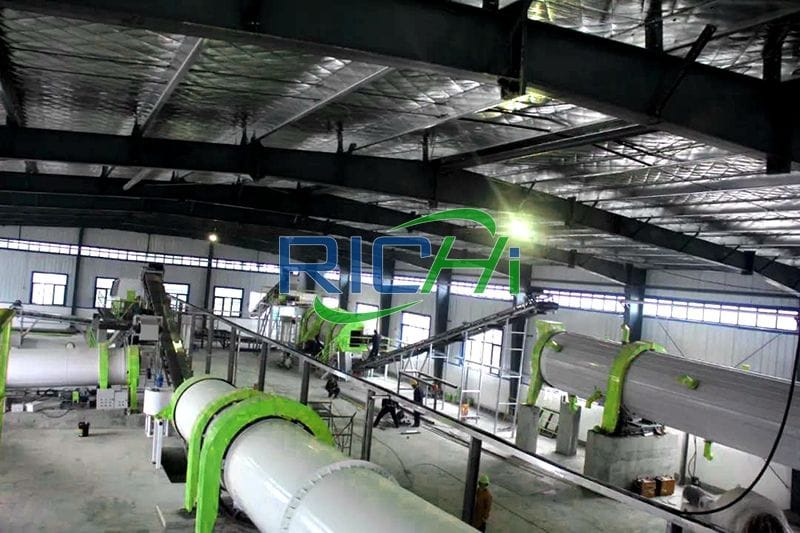
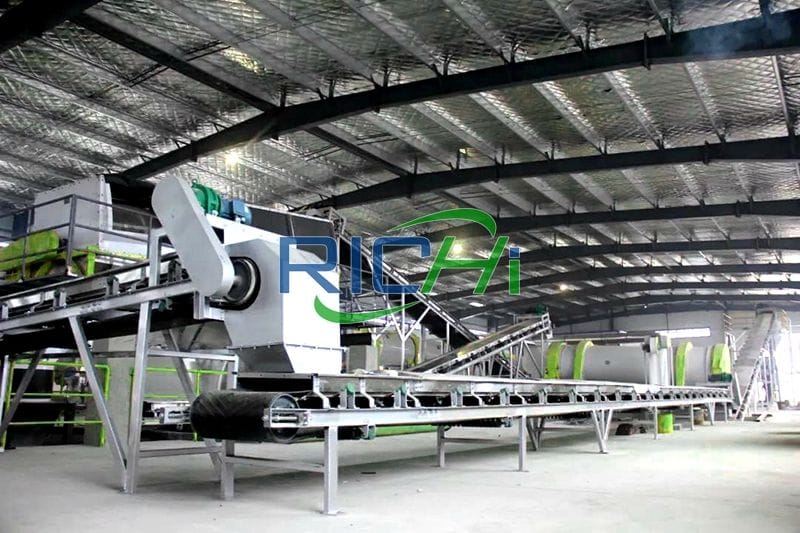
The above is the main process of building a new organic fertilizer production project. However, it should be noted that the construction process of each specific project may be different and needs to be adjusted and supplemented according to the actual situation.
Cost of building organic fertilizer production project
How much does an organic fertilizer production project cost? Generally speaking, the cost of building a 1-60t/h organic fertilizer project is between 20,000-3,000,000 USD. During the investment process of an organic fertilizer plant, detailed financial preparations and plan preparations are required, and the following expenses also need to be prepared.
- Land cost:
Organic fertilizer production project needs to find a suitable place to build the factory during the process of building the factory. Most of them will choose rural areas, which are basically industrial land. The cost of factory land must be controlled well, and the budget must be formulated according to the location and area of the factory. - Factory construction costs:
Depending on the situation in each country, the construction cost of a general factory building ranges from tens to hundreds of dollars per square meter. If the factory building area is relatively large and the organic fertilizer production project scale is large, the investment required will be relatively high.
This is ideal if you already have an existing factory. If you are using a venue that you do not own, you will need to pay a venue hire fee. This cost varies by region and needs to be considered in the investment budget. - Equipment cost:
During the preparation process of an organic fertilizer plant, it is also necessary to prepare a complete set of equipment required for the production of fertilizers, including various machines, mixers, belt conveyors, packaging machines, etc.
Purchasing organic fertilizer equipment is the first expense of investment. The brand, model, specifications and performance of the equipment will directly affect the price. Generally speaking, high-performance, large-capacity organic fertilizer equipment is more expensive. Appropriate equipment needs to be selected based on production scale and needs. - Shipping and installation fees:
Organic fertilizer equipment needs to be transported to the location of use and installed and debugged, which involves transportation costs, loading and unloading equipment costs, and labor costs for installation and debugging. This part of the expenditure also needs to be taken into account. - Electricity and energy costs:
Equipment in organic fertilizer production projects usually requires electricity to drive, so the cost of electricity needs to be considered during use. At the same time, if used in remote areas, the purchase and operating costs of energy equipment such as generators need to be considered. - Maintenance and maintenance costs:
Organic fertilizer equipment requires regular maintenance and upkeep to ensure the normal operation of the equipment and extend its service life. This includes parts replacement, lubricant costs, maintenance personnel wages, etc. - Labor costs:
Operating organic fertilizer production lines and equipment requires operators, and their wages will be part of the cost. Additionally, if dedicated maintenance personnel are required, their salaries should also be taken into consideration. - Environmental protection and monitoring costs:
In order to comply with ecological and environmental protection regulations, it may be necessary to invest in some environmental protection equipment or conduct emission monitoring, and related costs must also be included in the fee. - Raw material costs:
During the preparation process of the organic fertilizer production project, it is necessary to determine the source of raw materials according to the type of organic fertilizer produced, and do a good job in procurement to ensure a sustainable supply of raw materials. - Working capital costs:
During the preparation process of organic fertilizer, it is also necessary to prepare working capital for the daily operation of the factory and corresponding expenses, including the payment of water, electricity and miscellaneous fees. At the same time, relevant procedures also need to be completed. Liquidity needs to be sufficient to maintain daily operations.
In general, the cost of an organic fertilizer production project is a complex and multi-faceted issue that requires comprehensive consideration of the project’s civil construction, raw materials, process equipment, water, electricity and energy costs.
When formulating an investment plan, you should fully understand the market conditions and choose organic fertilizer equipment that suits your business needs and budget. (Find RICHI on YouTube)
organic fertilizer production project video

Start your organic fertilizer production project
In recent years, with the improvement of people’s living standards, people have paid more and more attention to the quality and safety of agricultural products. However, with the development of industrialization, environmental pollution has become more and more serious.
Especially in the agricultural industry, the indiscriminate application of chemical fertilizers, pesticides, additives, etc. has caused serious pollution to agricultural products. Therefore, the development of new organic fertilizers to gradually replace traditional chemical fertilizers has become a trend in the current world agricultural development.
Organic fertilizer production projects are an essential part of organic fertilizer development. If you’d like to find out how we might be able to help building your own production line with our solutions, contact us and one of our team will be happy to advise you .
